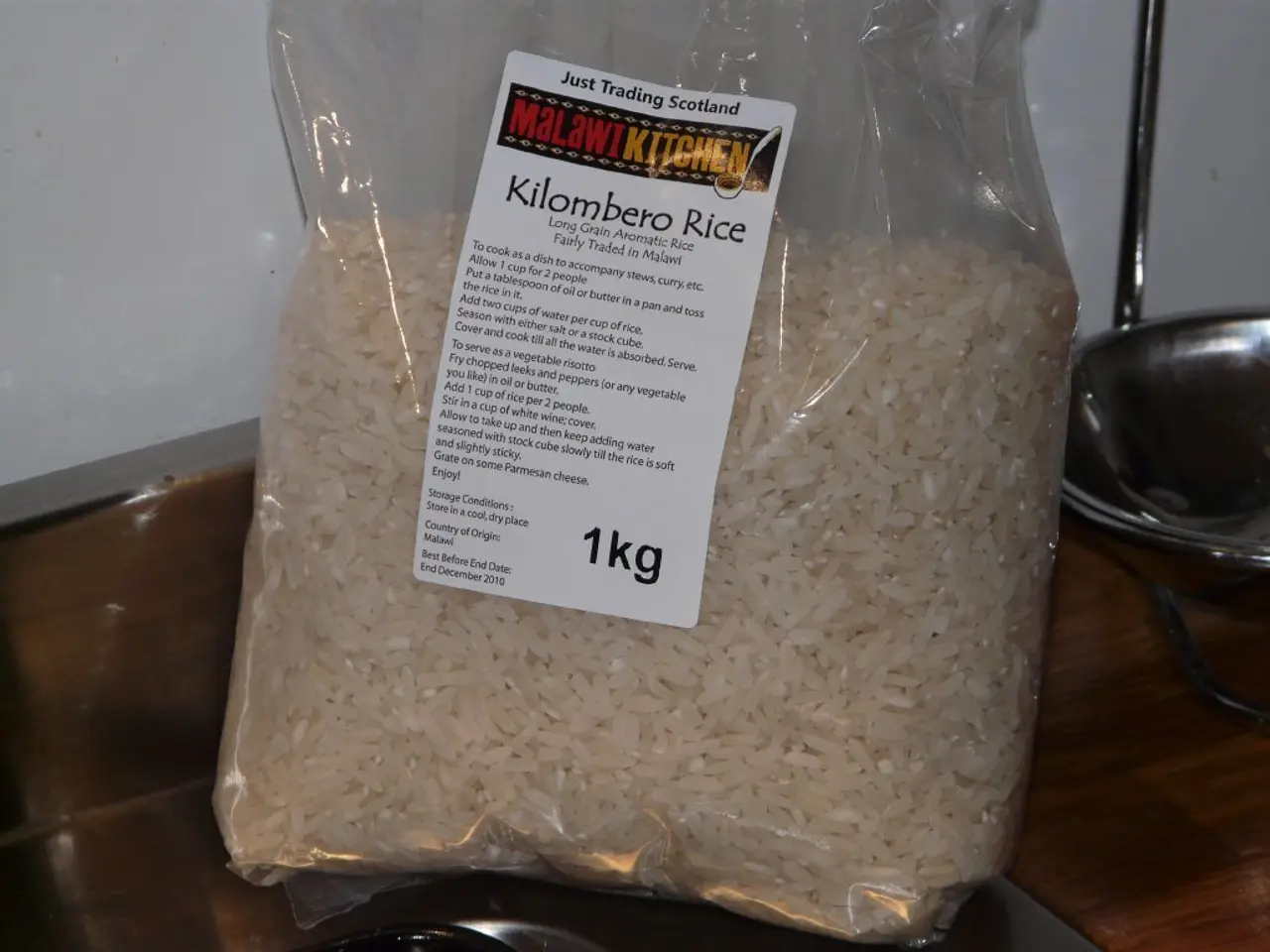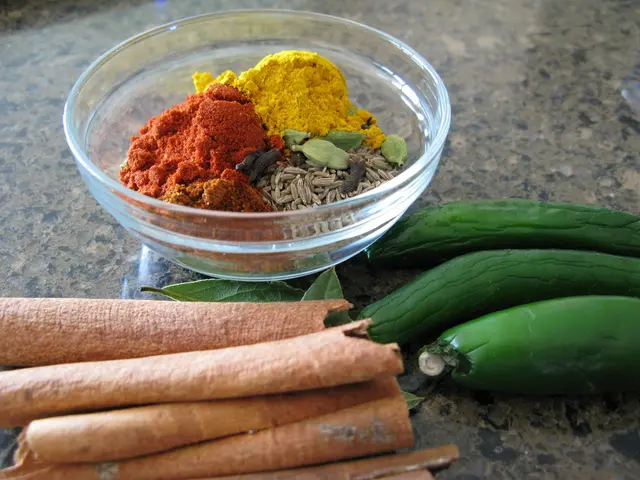Tamil Nadu's Culinary Gem: Salem Sago, a Nutrient-Rich, Gluten-Free Delicacy
In the heart of Tamil Nadu, Salem district, affectionately known as "Land of Sago," lies a thriving industry that has captured the world's attention. Salem Sago, also known as Javvarisi, is a starch-based food product extracted from tapioca roots, and it has been granted a Geographical Indication (GI) tag in 2023. This recognition not only protects its identity but also opens up new markets for this nutritious and versatile ingredient.
Salem Sago embodies a legacy of agricultural expertise, regional pride, and nutritional excellence. It is more than just a food ingredient; it is a testament to the hard work and dedication of the farmers and cooperatives that make up the sago industry in Salem.
Sagoserve, a cooperative society, plays a central role in ensuring quality control, stabilising prices, and streamlining trade. The Tamil Nadu government's efforts to promote GI-tagged products are ensuring greater consumer trust and broader market access, further positioning Salem Sago as one of Tamil Nadu's most treasured exports and a staple in kitchens around the world.
Salem produces more than 80% of India's sago, making it the country's leading production hub. The official GI tag and expanding global footprint continue to solidify its status as a key player in the international starch-based food market.
In modern and international cuisine, Salem Sago can be found in dishes like Mango Sago, Bubble Tea, Thai Sago Soup, Sago Pancakes, and Smoothie Bowls. It also plays a significant role in a variety of traditional Indian dishes such as Sabudana Khichdi, Sago Kheer, and Sabudana Vadai.
Salem Sago's health benefits, including its support for mental well-being due to essential amino acids, contribute to its appeal. It is gluten-free, easily digestible, heart-friendly, high in potassium, and energy-boosting, making it an excellent dietary addition.
The current market trends and opportunities for Salem Sago in international markets are promising. Consumers internationally are increasingly seeking natural, gluten-free, and traditional food products, aligning well with Salem Sago's uniqueness as an Indian starch derivative. The rising interest in health-conscious and gluten-free diets also favours the export potential of Salem Sago.
There is a growing niche for organic and sustainably produced starch products globally. Research by Indian agricultural scientists highlights the development of eco-friendly production technologies for cassava and related starch crops, which parallels the sustainable cultivation of sago palms and starch extraction methods. This trend could enhance Salem Sago's appeal in premium organic and environmentally conscious markets.
Salem Sago can also leverage the expanding ethnic food markets in North America, Europe, and the Middle East, where consumers are exploring Indian culinary ingredients and traditional foods. However, there are potential challenges and areas for growth. To penetrate international markets, Salem Sago producers will need to meet stringent quality, safety, and possibly organic certifications. Effective international marketing strategies to communicate the uniqueness and health benefits of Salem Sago will be crucial. Efficient supply chains ensuring product quality during transport will be necessary to sustain international demand.
While direct data on Salem Sago's export volumes or market share internationally was not found, the general trends in starch-based food products, organic and gluten-free markets, and increasing consumer interest in traditional ethnic foods suggest significant growth opportunities for Salem Sago in international markets, especially if producers capitalise on sustainable production methods and certification.
In summary, Salem Sago holds promising prospects to expand internationally by tapping into health, organic, and ethnic food trends driven by evolving consumer preferences worldwide. The potential for growth is immense, and with the right strategies and investments, Salem Sago could become a household name in kitchens around the globe.
- Science has an important role in the continued growth of the Salem Sago industry, as agricultural experts work on developing eco-friendly production technologies for cassava and related starch crops.
- In the realm of health-and-wellness, Salem Sago is valued for its support of mental well-being due to essential amino acids, making it a popular addition to healthy diets.
- As the world becomes increasingly conscious of climate change and environmental issues, environmental-science research could help Salem Sago producers implement sustainable cultivation methods and extraction techniques, enhancing its appeal in organic and environmentally conscious markets.
- In the thriving industry of food-and-drink and lifestyle interests, Salem Sago's versatility is showcased as it can be found in various dishes around the world, such as Mango Sago, Thai Sago Soup, and Sabudana Khichdi.
- Cooking enthusiasts are also embracing global-cuisines, and the interest in Indian culinary ingredients is on the rise, opening doors for Salem Sago in the expanding ethnic food markets in North America, Europe, and the Middle East.
- Skin-care enthusiasts might also appreciate Salem Sago, as certain starch-based products possess exfoliating and nourishing properties for the skin.
- Consumers are increasingly drawn to CBD products for their potential health benefits, and as the understanding of CBD expands within the scientific community, there may be opportunities for collaborations linking the Salem Sago industry with CBD research, potentially leading to novel product development in the health-and-wellness sector.








